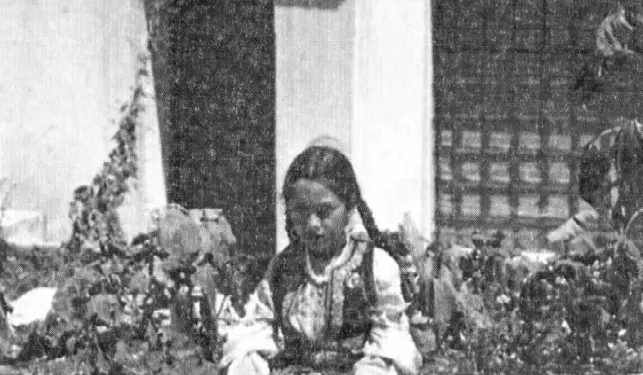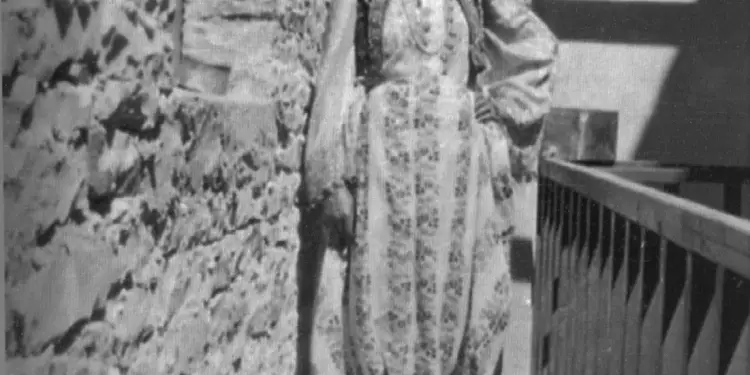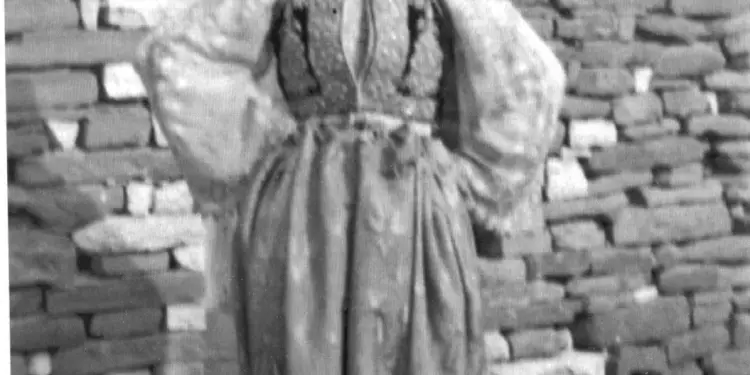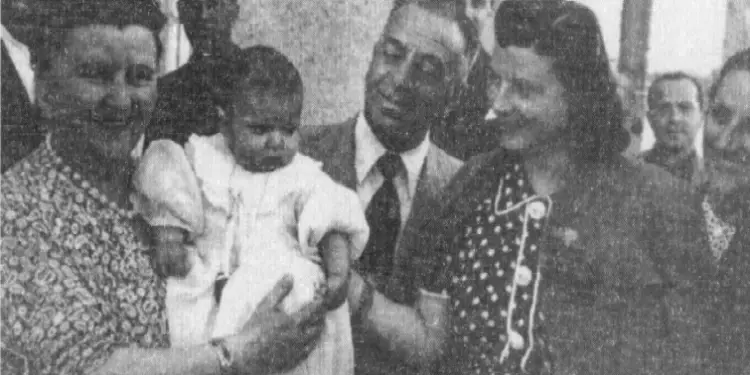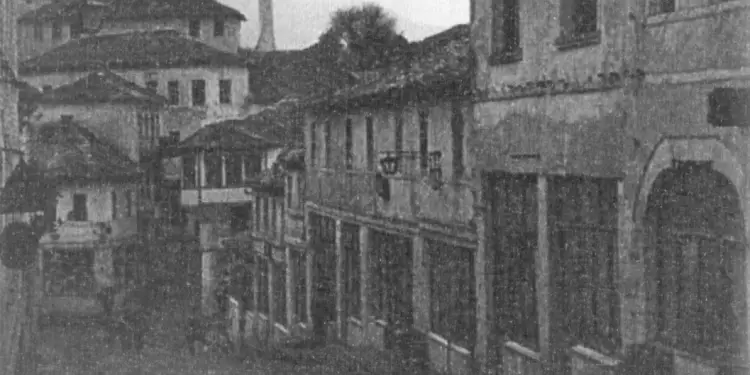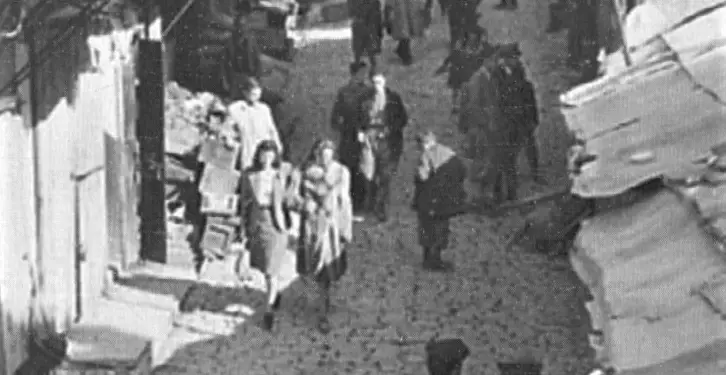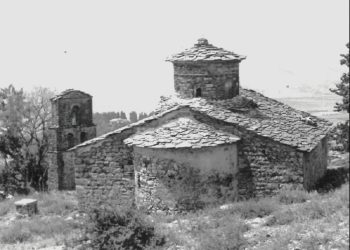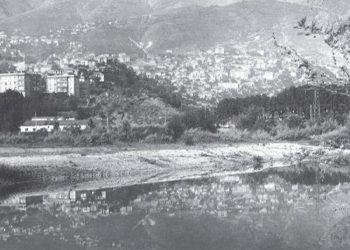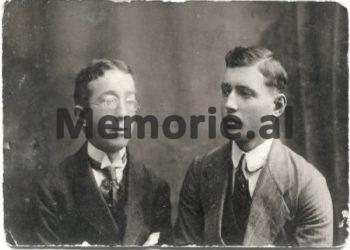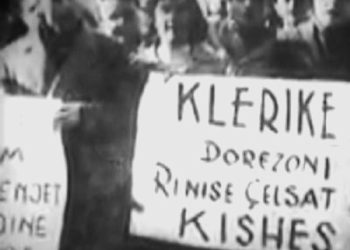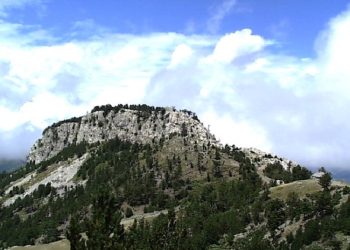By Aldo Renato Terrusi
– Excerpts from the book “Brenga ime albanian” –
Accueil
Memorie.al / Fiumicino Airport. Alitalia’s ‘MD 80’ plane is ready for flight. It’s Saturday, November 6, 1993. 11.25am. The commander received approval. The flight attendants remind us once again to fasten the seat belt. The two engines are brought to maximum power, while the noise becomes muffled and deafening.
Buttons and controls are tested for the last time according to flight procedures, the brakes are released, the faster and faster movement begins, the acceleration slams the passengers into the back, the plane takes off. I feel an invisible force lifting me up that leaves me suspended in the void. I look around to see if the other passengers have the same feeling as me. Some read, some look out the window, some are indifferent, some barely sit still and some, frozen in their seats, let their fears show. With a wide change of direction, the plane rises in height and heads towards the radio beacon of Bari, then straight to Tirana, our destination.
The weather forecast says that the weather will be good for the entire flight: some clouds and sun, temperature when we arrive 19 degrees, flight time almost 40 minutes.
Undoubtedly, if a long time ago someone had predicted a trip to Albania, with all my curiosity about the country where I was born, I would have called it foolish. Many times over the years I had considered a possible trip to that country, but it was just a brainstorm and nothing else, given the strictly prohibitive political-social conditions. That hypothesis was already taking shape: the iron curtain had fallen. Europe was changing its physiognomy: the Polish Pope, the fall of the Berlin Wall, the new policy of the Soviet Union, a deeper community consciousness. Only Tirana, closed in on it, still seemed untouched by the strong winds of democratic freedom.
Enver Hoxha, until the last congress of the party he participated in – before he died in 1985 – continued to support the Marxist ideology and visited Albania as a “homeland” and a closed fortress, in defense of its borders. But the people of the vital Albanian nation were starting to wake up from their long lethargy. The first important opposition demonstration, which managed to cross national borders, happened when the Popa brothers took refuge in the Italian embassy in Tirana, who sought political asylum.
The subsequent government of Ramiz Alise, although conservative and pro-communist, began to feel the need to reconnect relations with the West. After the push for changes beyond the curtain and internal protests that became more persistent day by day, the Albanian government was forced to make some democratic concessions. The right of religion was restored, passports were also eased, the individual development of agriculture was allowed, the secret ballot was restored and pluripartyism was authorized. All these innovations, on the one hand, enabled the country to become partially free, but on the other hand, they created a visible shock.
It was like suddenly opening the doors to a prisoner 1 who, until that moment, through the bars, he had admired the slender forms of a voluptuous woman who, he had never been able to put it in his hand. At this time, it happened that in the eyes of the Albanians, the image of poor Italy, known in their homes through television channels, came to the fore. A real ‘El Dorado’, which was not far away and since 1991, pushed tens of thousands of people to flock to Bel Pease by various means of navigation. The goal was a secure individual economic well-being within the shortest possible time. Italy was the country of reference; the closest among advanced countries. The first elections, finally democratic, brought Sali Berisha to the head of the state.
The new government’s political, legal and especially economic program, which envisioned a rapprochement with the capitalist West with predetermined conditions, received the approval of the majority of the population.
In the wave of resumption there was a clear religious reawakening, although the Albanian stock was and remained the feature of a unifying and distinguishing mind of the population: an undoubtedly strong nationalism, but perceived in a completely personal way, which disregarded any inclusion of the concept of the common good. With these premises, I was preparing to set foot again in the Land of the Eagles, my birthplace.
Finally, a free place would welcome me, where I could talk to people and not to individuals hidden in the shadows, and I would walk through the streets of Tirana without the fear of being spied on or caught they were looking for the reason why I had gone there. I would meet people and see things that would take me back to my childhood, reconnecting me with a part of my personal history that had been lost in my mind. Perhaps, who knew, I would succeed in reclaiming his native land and what was left of my father.
“Uncle, how did our family end up in Albania”?
“It’s a long story that comes from far away; I will tell you during the trip. We will have plenty of time and I hope that my memory will not leave me in the mud… many years have passed…! A series of incredible events and circumstances assigned us a black and cruel fate against which, unfortunately, we had to fight without ever being completely victorious. We spend a few minutes in silence, each immersed in his own memories.
Then the uncle begins to tell:
“At the end of the 1800s, many Italians, forced by unemployment and by the very bad economic conditions of the nation, began to move to the eastern shores of the Mediterranean: Dalmatia, Albania, Greece and Turkey, but also to the countries of North Africa, such as were Egypt and Libya.
Some favorable conditions for emigration had been created. On the one hand, political and military expansionism regulated by approval agreements between powers such as: Italy, Germany, France, England and the Soviet Union, which were controlled among themselves for hegemony over the Mediterranean and the Middle East. On the other hand, Italy, which had qualified people, such as company managers, engineers, architects, workers and specialized technicians, while Egypt, Turkey, Greece and Albania – which, on the contrary, had an urgent need for development, simply had the labor arm. In this way, a qualified emigration began, which continued even when the first sparks of war began to be felt on the European continent. Our family, like many other families at that time, had traveled the same path.
It seems like a historical paradox, but today Kurds, Bosniaks, Kosovars and Albanians are traversing the same path that we undertook and reversed many years ago. They come to Italy in search of an easy life; we, after a lifetime of work in the Country of Eagles, had to start everything from scratch”. It is a wonderful day in November, the few white clouds that hang awkwardly below us look like so many puffs of foam against the blue background of the sky and give the feeling of a warm welcome; in case of danger they seem to be able to offer us a smooth flight.
Uncle continues:
“In fact, from the last generation of our family home, only your father was born in Italy, in Palermo, all the others were born abroad.”
A moment of uncertainty.
“What about my father’s father?”
“Also my paternal grandfather, whose name was Nikola, was born in Palermo.”
“Your maternal grandfather, Vitaliano, was born in Istanbul, your grandmother in Konya, Turkey, and your grandmother’s father, Giacomo, was born in Kies, when Trentino belonged to Austria. Your great-grandfather, Giacomo, then married a Turk named Serafina”.
Another silence.
What can you say: quite a cocktail of breeds? We have always been a very ethnic family. But I remember great-grandmother Serafina. I laughed at her as she followed me around the kitchen table with her cane, snorting unintelligible words in Greek-Italian-Turkish.
“Have you thought about the organization, Aldo?”
“Don’t worry, everything is fine, I have made arrangements with the secretariat of the Italian Consulate in Tirana, a group of people deals with Cooperation, they will send one of their own to pick us up. They even told me that they were able to connect with two Albanians who speak Italian and who say they knew the father… let’s see.”
“You took a hotel”?
“I didn’t find anything! We will go to ‘Dajti’, about which you have told me so much”.
“Eh… so many stories… and so many memories. Look, Aldo, ‘Dajti’…”. The commander informs us of the flight over the Balkans.
We see the Italian coast that melts behind us, while between the clouds we see the sea that shines under the rays of the sun. One sentence hits my mind like a hammer: “Across the sea, where the sun rises…”, these are the words my mother repeated when, after they returned to Italy, I asked her where she was. Towards the Balkan coast the clouds become denser and grayer, almost threatening.
The plane regularly takes the descent corridor, the brakes are raised creating swirling noises, we descend from altitude, and we encounter some light turbulence as we pass through the low clouds.
The wheels sit spinning; there is no more turbulence, while the Albanian land appears below us. The plane lands safely on the runway. Cultivated lands, green forests, few scattered houses, and some roads. A ray of sunlight penetrates from afar, illuminating the mountains behind Tirana.
“Aldo, you see those mountains down there… the highest mountain is called Dajti, the hotel you reserved for us is named after it”.
Two things catch my attention: the cobblestone track of reddish-colored hexagonal stones and dozens of round structures that appear to be bunkers. Although the war ended 40 years ago. The landing is smooth, the engines brake on the taxiway, the plane slows to a slight sway, and finally, it stops before the entrance to the small airport.
The clock marks 12:30 when we set foot, after some 44 good years, on the Albanian land. Uncle has a strange habit, I can’t understand if he doesn’t feel well or if he has it from the emotions of the return.
“Uncle, how are you feeling?”
“Good. Age, mind you, takes its toll… how about you”?
“I have nothing”.
Maybe age really does take its toll, but his slightly hoarse voice hides an obvious longing. A young Albanian official of the Italian Consulate, Toli Arapi, welcomes us and introduces himself. It is there on behalf of the director of Cooperazione Italiana in Albania, Pierxhorxho Ramundo, with whom we had been in touch since before. He speaks excellent Italian and says he is at our disposal.
With the Cooperazione Italiana van, we head towards Tirana.
We cross the half-asphalted road, with an absolutely irregular width, with many potholes, often without sidewalks.
A small eucalyptus tree by the side of the road. People on bicycles, pedestrians, a few prehistoric cars, surprisingly quite a large number of rickety vehicles for transporting goods. A mule-drawn cart obstructs the disorderly and undisciplined traffic and makes it dangerous to pass, but apart from some drivers the few vehicles continue their zigzag. At the edge of the roads and often in the middle of half-cropped fields, dozens and dozens of bunkers. The flats in the suburbs are huge rectangular barracks; some of them dilapidated, from which hundreds of parabolic antennas sprout alongside colorful clothes. An incredible contrast: poor to the core, but who do not give up satellite television!
It is not uncommon to see sheep or goats roaming free in the public gardens. A well-dressed man with a pig for a halter – with a collar, was it a dog, walks happily, but in the end he is the only one, because after a while he shows a woman, in a typical peasant dress, who holds capistall a goat with the kid behind. Must be the fashion for these here…?! Most of the buildings that catch our eye are in urgent need of reconstruction or renovation. Only towards the center of the city do we notice some constructions from later times.
There is no modern urban waste collection system. We are surprised when we see some women without uniform on the side of the road, with a shovel, which was nothing more than a half-open tin box, filling a cardboard box that serves as a garbage can with garbage. Toli, understanding our confusion, tells us that those women are paid by the Municipality of Tirana and are officially responsible for cleaning the streets. Suddenly the panorama changes, we find ourselves in front of a large square, the lively heart of the capital. The area is four-cornered and very wide, there are many people moving from all directions, groups meet to exchange currency, gamble, and rarely exchange ideas. Very, very young.
The knightly monument of the Albanian hero, Gjergj Kastrioti Skënderbeu, looks very beautiful. He led the uprising of the Albanian people against the Turks. Under his leadership, the princes of the local provinces united by resisting and fighting against the invaders. During the war of the Albanians against the Ottomans, that process took place that ended with the birth of a single central state and the flag of the Kastrioti family, with two proud black eagles on a red field, became the Albanian national flag.
On one side of the square rises the beautiful and old mosque of Et’hem Bey with its tall minaret, next to the elegant four-cornered clock tower, in front is the Museum of Arts and Crafts, the facade of which is covered by a large mosaic, next to it is the Palace of Culture with an imposing appearance, with Soviet reminiscences, part of which is also the National Library. Two tall buildings – distinguished from other buildings by their height – complete the panorama of the square.
In continuation of our short tourist walk, we pass along Dëshmorët e Kombit Boulevard, a pompous realization of the Italian dictatorship – with double rows of trees on the sides of very wide sidewalks that take you from Skënderbej Square straight to the mythical Qemal Stafa stadium. The golden Albanian football team played and won here in the 40s. We pass a strange pyramidal building; they explain to us that it was the mausoleum that Enver Hoxha built to one day preserve his deeds. Now it has been transformed into a building for exhibitions and fairs. In the area very close to the Boulevard, Tirana does not differ much from other cities of the continent.
“DAJTI”
Almost in the middle of the wide Boulevard of Martyrs of the Nation, the van finally stops in front of the famous “Dajti” Hotel. Its exterior is rather disappointing, battered by the wrinkles of time: it is an old, dilapidated building of the Fascist era, rectangular, linear, of an indefinable pale color. A large marble staircase of thirteen steps leads us to the entrance on which we see a sign with the word “Dajti” written in red.
There is no porter for the suitcases, so we take them ourselves. Toli buys us money. We enter the lobby: in front of us is a wide hall with a winding staircase leading to the upper floors, on our right the reception. We give the names we booked with. The receptionist looks at us completely without curiosity and undecided. As if remorse suddenly caught him, he turned and disappeared, leaving us with a finger in our mouth. We look at each other in surprise and wait patiently. After a while, a gentleman comes who was almost holding his breath: “I am the director. My name is Spartak Topollaj and I am very honored to welcome you to our hotel”.
He is a man in his forties, tall, straight, handsome, with a friendly look.
“I’m glad, Pozeli”. “I’m glad, Terruzi”.
“Are you Gjacomino Pozeli, the famous goalkeeper of the National Team that won the Balkaniad in 1946?”
“Yes, exactly he and this are my nephew Aldo. But you are young, how do you know these things?”
“When I read the names you had booked with… I am very fond of sports… I asked the receptionist to announce as soon as you arrived. I’m taking your bags to your rooms right away. Come, I’ll treat you to something from the bar, let’s exchange a few words, while they prepare something for you to eat in the kitchen”.
Although it was past 2 o’clock after lunch, apparently the cooks had left them waiting for us to arrive.
“Then Jacomo, what about us from this side?”
“A sad story. I am accompanying my grandson, who will find the remains of his father who died in the Burrel prison”.
“I’m sorry; I hope your wish comes true. Cheers, congratulations on your return to Albania and your research. Go to the salon, the first table on the right is set just for you, today we rent. Eat calmly, I’ll see you later.”
“Toli, will you accompany us”?
“No, thanks, I have to go back to the embassy, because we were a little late. See you tonight after work”.
The dining room is welcoming and elegant, so spacious you almost get lost in it. The ceiling is at least six meters high. There are large windows on three sides of the hall, white embroidered linen curtains hang from the ceiling to the floor, with hanging ornaments and over red satin curtains. The glossy straight floor is ocher. Many square tables simply laid with white tablecloths embroidered on the sides. An oversized stained glass chandelier with hyacinth-like pendants stands out in the center of the hall; the stylized ornaments on the walls spread a warm light. We are the only customers.
“Uncle, this was the famous holiday salon you were talking about”?
“Yes, once upon a time, the most important Albanian ceremonies took place here.” Memorie.al
The next issue follows




